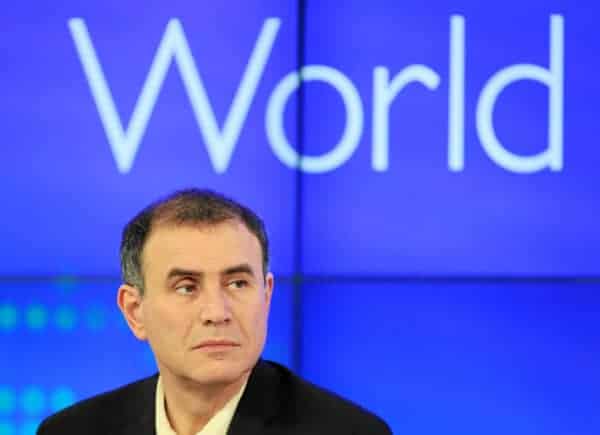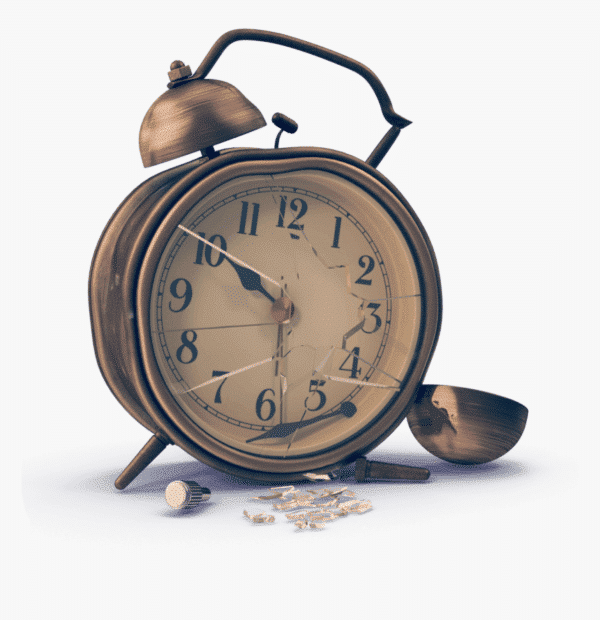

Copyright by World Economic Forum
swiss-image.ch/Photo by Sebastian Derungs
Economist Nouriel Roubini thinks the current economic crisis could be child’s play compared to the wholesale depression coming up in just a few years’ time.
While we’re still in the trenches of a global health crisis, the question on many minds is how and when will the economy recover?
The huge market rally in April looked promising but with many countries still in lockdown mode and economies worldwide in a holding pattern, many are predicting the blow to economies will be immense, not just in 2020 but beyond.
The so-called U-shaped recovery stands in contrast with a V-shaped return to form whose proponents have pointed to the strength of, for example, the US economy just prior to the COVID-19 crisis as reason to believe the pain will be shorter-lived and that the low unemployment and strong housing and manufacturing markets of the recent past should be taken as signs that once economies are opened up again, the upswing will be swift.

Of course, there’s also the L-shaped recovery characterized by high unemployment and a deep recession, and while such a scenario is part of the punditry these days, strangely enough, Roubini — NYU professor and former White House senior economist under US President Bill Clinton and one of the reigning kings of economic pessimism (he is one of a handful of pundits who has earned the moniker “Dr. Doom”) is not calling for an L-shaped response to COVID-19. Rather, the L will be coming a little later down the road, he says.
“Essentially, my view is that this is going to be a U because this is a global shock. Both households and corporates will have to spend less and save more. Incomes are going to be lower and there’ll be less capital spending by the corporate sector and the household sector that be leveraged,” said Roubini on BNN Bloomberg on Tuesday.
“So you spend less, you save more, you do less capex. There will be a global investment slump and a global savings glut. That’s a recipe for very anemic recovery of the US, of Canada, of the global economy,” Roubini said.
Roubini shot to almost-household name status in 2008 after he was credited with predicting the financial crisis, and while his macro claims are not all negative Roubini hasn’t gotten the tag “Dr. Doom” for nothing.
But Roubini’s broken clock act has worn thin for many. Search his name plus the words “collapse” or “depression” and you will get results from 2020. And 2016. And 2011. Etc. Etc.
A 2011 article entitled “Nouriel Roubini Was Wrong, Again, and Again and Again…” by Eric Tyson documented some of his more notable swings-and-misses, including his take that the 2008 recession would last far longer than it did.

“Last fall, I kept hearing about economist Nouriel Roubini, who supposedly predicted the financial crisis,” noted Tyson in 2009. “He was all over the cable television circuit claiming that he had predicted the myriad horrible things that were happening. I wrote the following piece on October 24th because his prediction that hedge fund selling would force regulators to close world stock markets for one to two weeks was absurd. It was indeed absurd and of course, never happened. Roubini was wrong. In researching his past predictions over preceding years, I was struck by how many were wrong. If the economy continues to improve as the year goes on, it will be interesting to see how Roubini will try to explain the myriad negative predictions he has continued to make in recent weeks and months.”
What followed this time? Nothing less than the longest bull market in United States history.
While not having predicted today’s economic collapse in its current form, a couple of years ago Roubini did call a recession for 2020, based on the belief that the US economy would be overheated and too many countries would be drowning in debt.
Roubini says the COVID-19 crisis has only made worse many of the previously existing conditions for our economic ruin, and moreover, that governments can do little now to stop the downturn to depression.
“We’re going to end up into a great depression and it’s going to happen this decade,” Roubini said. “And policies cannot do much about it. Actually, policies for more stimulus and monetary and fiscal credit and otherwise are going to exacerbate the debt imbalances, are going to exacerbate the debasement of currencies.”
“Mix that with globalization protectionism and populist and economic nationalism that’s going to increase the risk of stagflation, recession and inflation. Today the risk is deflation and in a couple of years we’ll have a risk of inflation like we had in the 1970s,” he said.
“So we’re seeing ahead a greater depression,” Roubini said.”
Leave a Reply
You must be logged in to post a comment.



 Share
Share Tweet
Tweet Share
Share




Comment